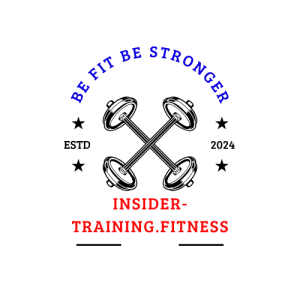Most people struggle to build muscle effectively, with research showing that approximately 70% of gym-goers fail to achieve their desired results. Common myths suggest that genetics and supplements are the main factors for muscle growth, but the truth is more complex. The key to gaining muscle lies in understanding nutrition, training, recovery, and consistency.
Nutrition: Fueling Muscle Growth
Macronutrient Balance: The Importance of Protein, Carbs, and Fats
To effectively build muscle, focus on your macronutrient intake. Aim for 1.6 to 2.2 grams of protein per kilogram of body weight. Protein is vital for repairing and building muscle tissue. Carbohydrates provide energy, helping you power through workouts and replenish glycogen stores. Healthy fats, such as avocados and olive oil, support hormone production and overall health.
Meal Timing and Frequency: Optimizing Nutrient Delivery
Spreading protein intake throughout the day can be beneficial. Consider these meal timing strategies:
Pre-workout: A protein-rich snack can fuel your workout.
Post-workout: Consume protein to kickstart recovery.
Before bed: A slow-digesting protein can be helpful, like casein.
Hydration: The Often-Overlooked Essential
Water is crucial for muscle protein synthesis and performance. Dehydration can lead to fatigue and decreased recovery. Aim for about 3-4 liters of water daily, adjusting based on activity levels and body weight.
Training: The Science of Hypertrophy
Progressive Overload: The Cornerstone of Muscle Growth
Progressive overload means gradually increasing the weight or reps in your workouts. This stimulates muscle growth. For example, if you bench press 100 pounds for eight reps, aim for 100 pounds for nine reps next workout. A strength coach advises, “Consistent demand on the muscles forces them to adapt and grow.”
Exercise Selection: Compound vs. Isolation Exercises
Compound exercises, like squats and deadlifts, engage multiple muscle groups and are efficient for overall growth. Isolation exercises, such as bicep curls, can target specific areas. Choose based on your goals; if you want overall strength, prioritize compound lifts.
Training Split: Optimizing Muscle Recovery
Consider different training splits:
Upper/Lower Split: Alternate upper and lower body workouts.
Push/Pull/Legs: Focus on pushing movements, pulling movements, and leg work.
Allow for adequate rest days to promote recovery and growth.
Recovery: The Unsung Hero of Muscle Growth
Sleep: The Foundation of Muscle Repair
Sleep plays a critical role in muscle recovery. Aim for 7-9 hours of quality sleep each night. Poor sleep can decrease muscle protein synthesis and hormone efficiency. To enhance sleep, maintain a consistent schedule, limit screen time before bed, and create a restful environment.
Stress Management: Minimizing Cortisol Levels
High stress increases cortisol, which can hinder muscle growth. Techniques like meditation, yoga, and deep breathing can help reduce stress. A health professional suggests finding daily activities that promote relaxation to keep cortisol levels in check.
Active Recovery: Enhancing Blood Flow and Reducing Soreness
Engaging in light activities, such as walking or stretching, helps blood flow to working muscles and reduces soreness. Combine active with passive recovery methods, like rest days or massage, for best results.
Supplements: Enhancing Your Muscle-Building Efforts
Creatine: Proven Benefits for Strength and Power
Creatine can boost muscle growth by promoting strength and power during workouts. Studies show creatine supplementation increases muscle mass. The typical dosage is 3-5 grams daily, with a loading phase of 20 grams for the first five to seven days being effective for some.
Protein Powder: Convenient Source of High-Quality Protein
Protein powder can help meet your daily protein needs, especially if you struggle to consume enough through whole foods. Common types include whey, casein, and soy. Choose a powder that aligns with your dietary needs and preferences.
Other Supplements: A Critical Look
While some supplements may help, others lack proven benefits. Always consult with a healthcare professional before adding new supplements to your routine. Stay cautious of unregulated products.
Consistency and Patience: The Key to Long-Term Success
Setting Realistic Goals and Expectations
Setting achievable muscle-building goals is essential. Focus on small, measurable targets to track progress. A personalized plan can guide your journey. Adjust it as needed based on your results.
Staying Motivated and Avoiding Burnout
To maintain motivation, set new challenges and mix up your routine. Balance workouts with leisure activities to prevent burnout. Celebrate small victories to keep spirits high.
Conclusion: Your Journey to Muscle Growth Begins Now
Nutrition, training, recovery, supplements, and consistency are the pillars of effective muscle growth. Adopting a holistic approach will lead to better results. Take the first step today and start working towards your muscle-building goals. Your transformation awaits!

Free Download>>> Insider-training.fitness

